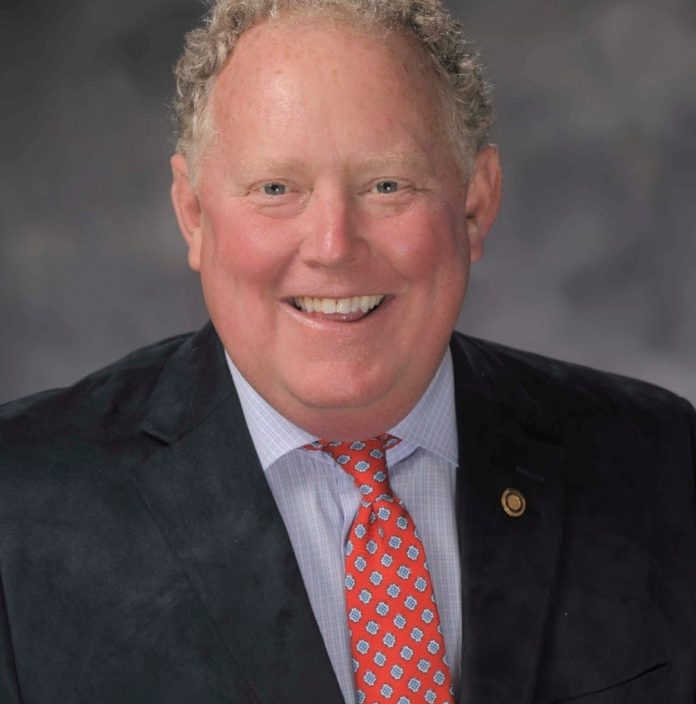Greetings from Jefferson City. We had a very long week at the Capitol working on the Supplemental Budget and Initiative Petition Reform.
House Approves Initiative Petition Reform (HJR 79)
The Missouri House has approved a proposed constitutional amendment that would allow voters to decide if the current threshold to change the state constitution is too low. If approved by both chambers and voters, HJR 79 would modify the requirements for initiative petitions to change the state constitution.
Currently in Missouri, a proposed constitutional change requires the support of a majority of voters to be approved. Under HJR 79, a constitutional amendment would need the approval of a two-thirds majority for passage.
HJR 79 also proposes a change to the requirements to place a constitutional amendment on the ballot. Currently, an initiative petition requires signatures from 8% of voters in six of Missouri’s eight congressional districts to qualify for the ballot. HJR 79 would require signatures from 10% of voters in all eight congressional districts. He added, “I think they should have to go to all parts of the state – northeast, northwest, southeast, southwest, and central Missouri – and gather signatures. I think all of the people of the state count equally, and they should have to go to all parts if they’re going to change something as sacred as our constitution.” During discussion on the House floor, members also approved an amendment to require the Secretary of State to conduct a review and comment process for the general public in each congressional district no less than 15 days before a proposed constitutional amendment appears on the ballot.
Supplemental Budget Bill Receives House Approval (HB 3014)
The House has sent a supplement spending plan to the Senate that will provide vital funding for K-12 schools and the state’s Medicaid program, as well as a statewide pay plan increase. HB 3014 authorizes nearly $4.6 billion in funding to be utilized in the current fiscal year that ends in June.
The bill includes more than $2.8 billion in funding for K-12 schools in Missouri. That total includes nearly $1.8 billion in Elementary and Secondary Education Relief funds that are allocated to local education agencies. With this, Missouri’s school districts are fully funded. The bill also includes more than $444 million for the Office of Childhood for stabilization services. Additionally, the plan allocates $75 million for the Close the Gap Grant Program.
The House Budget Committee chairman, who sponsors the bill, told his colleagues, “There is a new concept in this budget bill, something we’re calling the close the gap grants, which is $75 million intended to go for reimbursement to families in Missouri to address learning loss.” He added, “The intention there is to get some money to families, provide some relief for the expenses they’ve incurred related to learning loss. This could be for curriculum, for equipment, for tutoring. I think there’s a great need for that in this state. We’ve seen a tremendous consequence of the pandemic has been learning loss, so this would hopefully help catch some kids up across the state and provide relief to those families.”
HB 3014 also includes more than $1.5 billion in funding for the state’s MO HealthNet program. The funds are necessary to avoid a funding shortfall in the program due to the increased Medicaid population.
Additionally, the bill allocates more than $91 million for a pay increase for all state employees. During public hearings in the Budget Committee, members learned state jobs have a 26% turnover rate, and a more than 55% turnover rate in jobs that pay less than $30,000 annually.
The plan approved by the House would ensure that state employees working in direct care agencies would receive either a 5.5% pay raise, or an increase to an hourly wage of $15 per hour, whichever is greater. Employees in other state agencies would receive a 5.5% pay raise or an increase to a $12 per hour wage, whichever is greater.
The House Budget Committee chairman said the bill makes an investment in the state workforce “to help retain and attract talented employees.”
Both bills now moves to the Senate for consideration.






